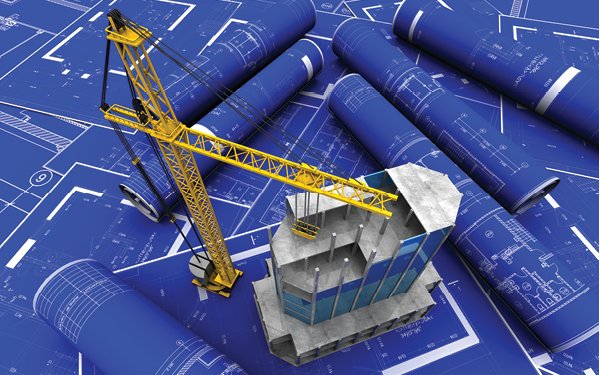Construction projects are multifaceted endeavors that require meticulous planning and coordination. Among the many elements that contribute to a project’s success, logistics stands out as a critical factor. Efficient logistics ensure that materials, equipment, and labor are available where and when they are needed, minimizing delays and costs. Construction management software, equipped with advanced planning tools, plays a pivotal role in optimizing logistics, making complex projects more manageable and efficient.
Streamlined Material Management
One of the biggest challenges in construction logistics is managing materials. Delays in material delivery can halt progress, while excess materials can lead to wasted resources and increased costs. Construction management software provides a solution by offering sophisticated tools for tracking and managing materials throughout the project lifecycle.
With features such as real-time inventory tracking and automated reordering, the software ensures that materials are available when needed without overstocking. Project managers can use these tools to monitor material usage rates, predict future needs, and coordinate with suppliers for timely deliveries. This level of precision in material management reduces waste and helps keep the project on schedule and within budget.
Efficient Equipment Utilization
Construction projects often involve the use of various heavy machinery and equipment. Efficient utilization of this equipment is crucial for maintaining productivity and controlling costs. Construction management software offers tools for tracking equipment usage, maintenance schedules, and availability, ensuring that machinery is used effectively.
For example, project managers can schedule equipment usage based on the project timeline, ensuring that machinery is available for critical tasks. The software can also track maintenance needs and alert managers when equipment requires servicing, preventing unexpected breakdowns and costly downtime. By optimizing equipment utilization, construction management software helps keep the project running smoothly and efficiently.
Optimized Workforce Allocation
Labor is another vital component of construction logistics. Ensuring that the right workers are in the right place at the right time is essential for maintaining productivity and meeting project deadlines. Construction management software includes features for scheduling and managing the workforce, allowing for optimal allocation of labor resources.
The software enables project managers to create detailed work schedules, assign tasks based on worker skills and availability, and monitor labor costs. Real-time updates ensure that any changes in the project plan are quickly communicated to the workforce, minimizing disruptions. This level of workforce management helps maintain productivity and ensures that labor resources are used efficiently.
Real-Time Communication and Collaboration
Effective communication and collaboration are crucial for coordinating logistics in construction projects. Construction management software provides a centralized platform for all project stakeholders to communicate and share information. This ensures that everyone is on the same page and that any issues can be addressed promptly.
For instance, project managers can use the software to share updates on material deliveries, equipment availability, and workforce schedules with the entire team. This real-time communication helps prevent misunderstandings and ensures that all team members are aware of their responsibilities and the project’s status. Enhanced collaboration leads to better coordination and more efficient logistics management.
Data-Driven Decision Making
Construction management software offers powerful data analytics tools that enable project managers to make informed decisions about logistics. By analyzing data on material usage, equipment performance, and labor productivity, managers can identify trends and potential issues before they become major problems.
For example, data analysis can reveal patterns in material consumption, allowing managers to adjust orders and prevent shortages or excesses. Similarly, data on equipment usage can help optimize maintenance schedules and prevent breakdowns. By leveraging the insights provided by the software, managers can make proactive decisions that improve logistics efficiency and project outcomes.
Enhanced Risk Management
Construction projects are inherently risky, with numerous factors that can cause delays or increase costs. Effective logistics management helps mitigate these risks by ensuring that materials, equipment, and labor are available when needed. Construction management software enhances risk management by providing tools for identifying and addressing potential logistical issues.
For example, the software can track weather patterns and other external factors that might impact material deliveries or equipment usage. By anticipating these risks, project managers can develop contingency plans and adjust schedules to minimize disruptions. This proactive approach to risk management helps keep the project on track and reduces the likelihood of costly delays.
Sustainability and Cost Efficiency
Optimizing logistics not only improves project efficiency but also contributes to sustainability and cost savings. Construction management software helps minimize waste by ensuring that materials are used efficiently and that excess inventory is avoided. Efficient equipment and labor utilization also reduce energy consumption and associated costs.
By streamlining logistics, construction management software helps companies achieve their sustainability goals while maintaining cost efficiency. This is particularly important in today’s construction industry, where there is increasing pressure to deliver projects that are both environmentally responsible and economically viable.
Conclusion
Optimizing construction logistics is essential for the success of any project, and construction management software provides the tools needed to achieve this goal. By streamlining material management, optimizing equipment utilization, efficiently allocating the workforce, enhancing communication and collaboration, enabling data-driven decision making, improving risk management, and promoting sustainability and cost efficiency, the software transforms how construction projects are managed.
As construction projects become more complex and the demand for efficiency and sustainability increases, the role of advanced planning tools in construction management software will only become more critical. Embracing these tools can lead to more successful projects, satisfied clients, and a stronger competitive edge in the industry.

